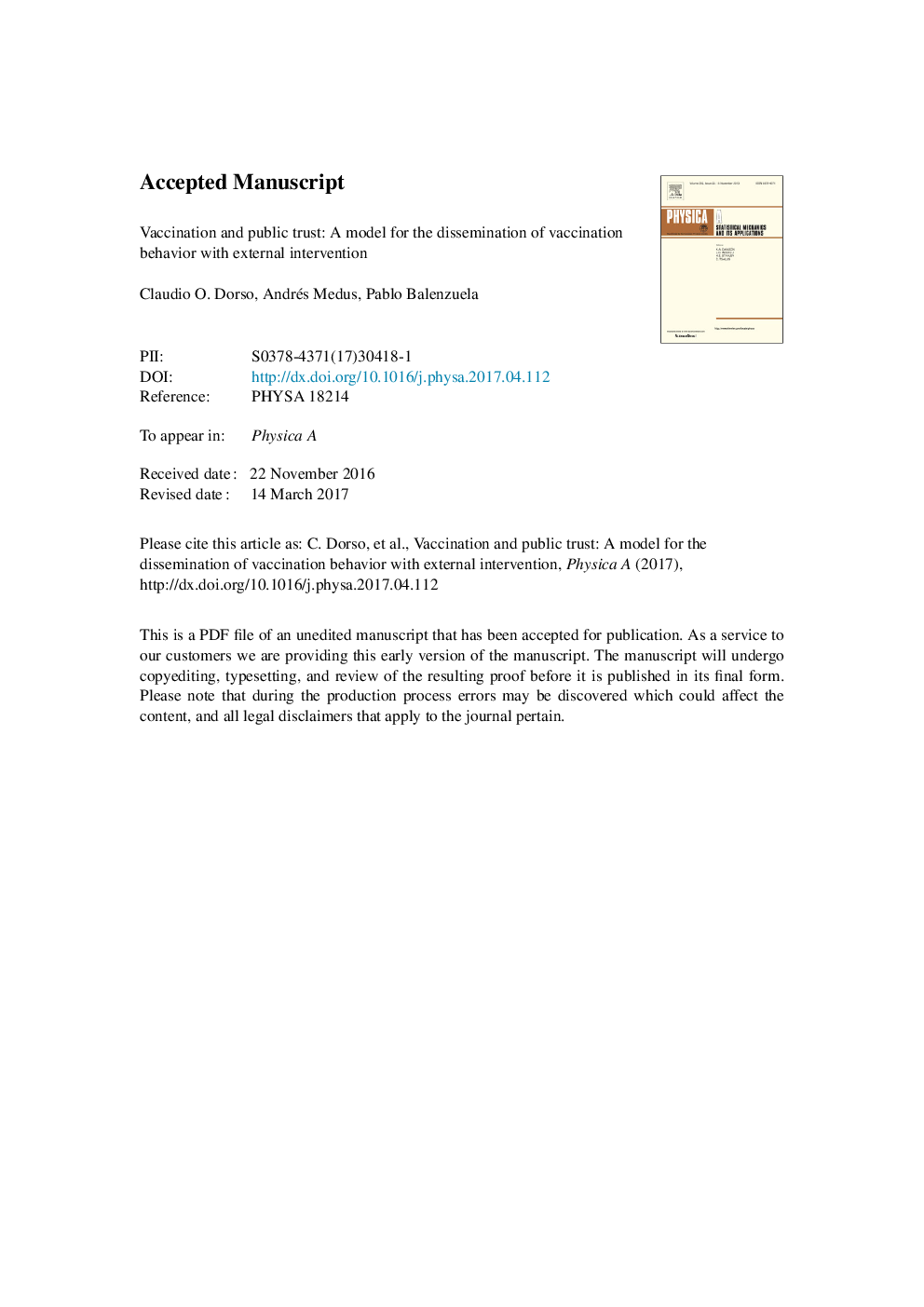ترجمه فارسی عنوان مقاله
واکسیناسیون و اعتماد عمومی: یک مدل برای انتشار واکسیناسیون با مداخله خارجی است
عنوان انگلیسی
Vaccination and public trust: A model for the dissemination of vaccination behaviour with external intervention
| کد مقاله | سال انتشار | تعداد صفحات مقاله انگلیسی |
|---|---|---|
| 143922 | 2017 | 25 صفحه PDF |
منبع

Publisher : Elsevier - Science Direct (الزویر - ساینس دایرکت)
Journal : Physica A: Statistical Mechanics and its Applications, Volume 482, 15 September 2017, Pages 433-443
ترجمه کلمات کلیدی
اپیدمی، پویایی سازگار، رفتار پیچیده پیچیده، مدل مبتنی بر عامل، جامعه شناسی،
کلمات کلیدی انگلیسی
Epidemics; Adaptive dynamics; Complex emergent behaviour; Agent-based model; Sociophysics;

